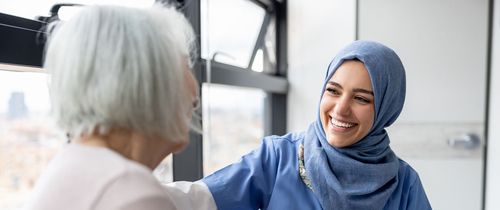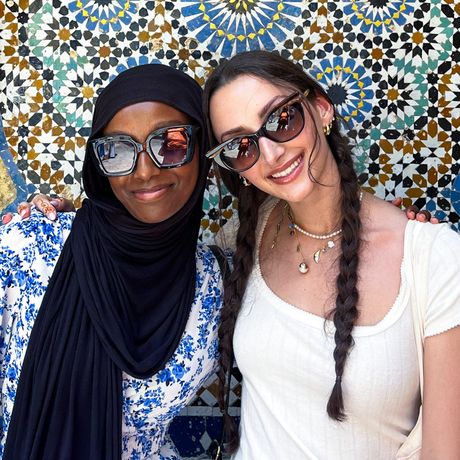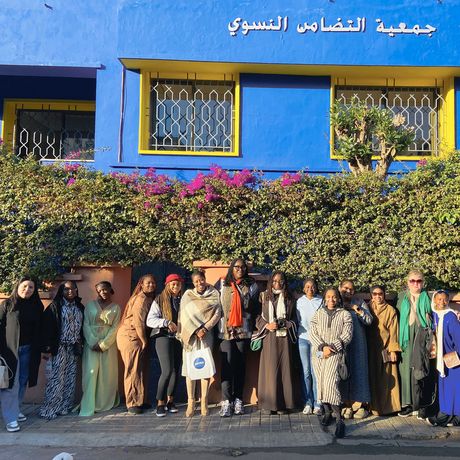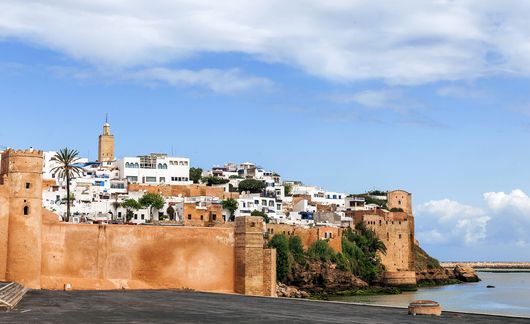
Women's Health in Morocco
RABAT, MOROCCO
This program explores the relationship between Moroccan women’s rights, health, and culture and the local realities of broader global health and gender justice. Every CIEE Faculty-Led & Custom program is a unique combination of high-quality academics and co-curricular activities and excursions that offer real-world experiences to enhance classroom learning.
Destination
Morocco’s capital and second largest city, Rabat, is host to prestigious universities, many international institutions such as UNESCO and the World Bank, and a range of opportunities to experience its culture. The city's blend of rich history and modern comforts give it a unique lens into the intersection of modern healthcare systems, gender roles, and social change.
Co-Curricular Activities

LECTURES
Women's Health in Morocco program includes the following guest lectures:
- Overview of women's healthcare in Morocco
- Meeting and discussion with a women’s health practitioner
- Traditional healthcare practices including hammams, midwifery, herbal medicine.
- Women’s legal positionality in Morocco and the updated Moudawana (family code)

SITE VISITS
Here are just a few of the possibilities for co-curricular activities and excursions in Rabat:
- Visit to a Moroccan non-profit organization advocating for women's rights and equality.
- A guided visit to the Mohammed VI Museum of Modern and Contemporary Art for understanding modern expressions of women’s experiences.
- Attending Hammam Ceremony, a traditional communal bathing ritual deeply rooted in Moroccan culture and Islamic practices and a vital social space for women, offering rich insights into women’s health, community support, and gender .
- A visit to a local NGO to learn about local healthcare realities and efforts for improvement.
- Homestay integration activities. Through engagement with women residing in the traditional medina of Rabat, students have a unique opportunity to observe and learn from intergenerational practices and the everyday social dynamics of women in this historic urban context. Through participatory activities—such as the preparation of Moroccan mint tea, the cooking of traditional dishes like tagine, harcha, or baghrir, and the learning of Moroccan folk songs—students will gain insight into the nuanced ways in which cultural knowledge and practices are transmitted and sustained. Each activity reflects the intentionality and care embedded in daily life, underscoring how routine practices serve as vital expressions of collectivism, resilience, and cultural preservation.
What's Included
Every program is tailored to suit the needs of your academic goals – so every program has unique program inclusions and pricing based on your needs. In addition to the programmatic and cultural inclusions above, a standard CIEE custom program includes on-site orientation, 24/7 emergency support, in-country transportation, accommodations, some meals, classroom space, comprehensive insurance coverage and logistical support from our on-site CIEE staff. We also offer marketing templates and other valuable tools to help you get the word out to students.
Health, Safety, & Security
CIEE has over seven decades of experience creating engaging and reliable study abroad programs around the world, with an excellent safety record. Each of our sites is regularly assessed using international risk management standards and data to facilitate successful programs. In addition, our custom and faculty-led programs include pre-departure and on-site orientations, iNext travel insurance, the support of trained CIEE staff members on-site, and 24/7 emergency support in-country. Learn more at ciee.org/safety.
